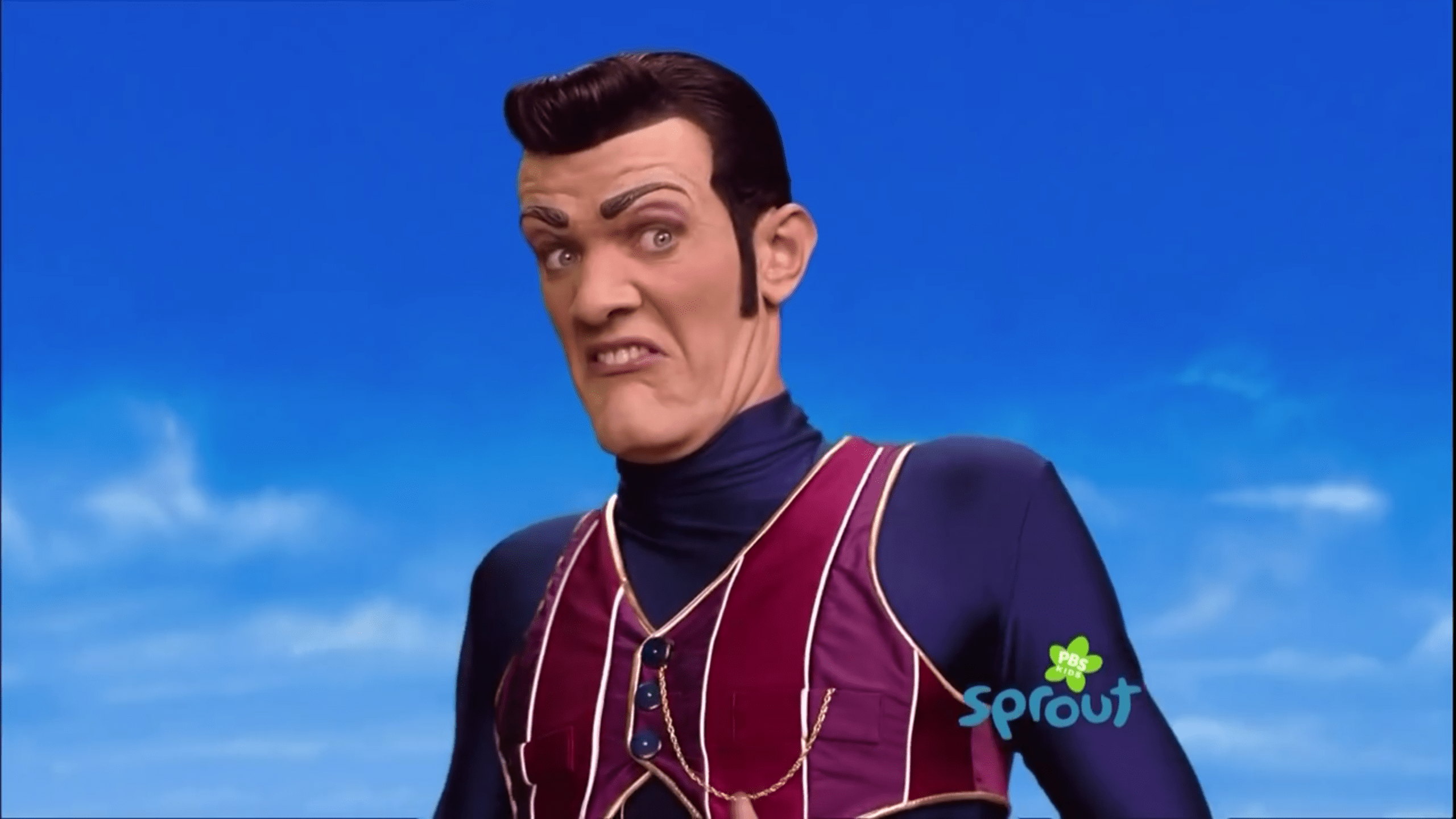Robbie Rotten, the notorious character from the children's television series LazyTown, has won the hearts of audiences worldwide with his humorous antics and memorable catchphrases. This article delves into the life and legacy of Robbie Rotten, exploring his origins, character traits, and the impact he has had on popular culture. In an age where children's programming is constantly evolving, Robbie Rotten stands out as a unique figure who has left a lasting impression.
This comprehensive exploration will cover various aspects of Robbie Rotten, from his creator to the actor who portrayed him, as well as the show's themes and messages. We will also discuss the cultural phenomena that emerged surrounding this beloved character, including memes and fan tributes. Whether you're a long-time fan or new to the world of LazyTown, this article aims to provide you with valuable insights and information.
As we embark on this journey through the whimsical world of Robbie Rotten, we will honor the legacy of the character and the creative minds behind him. Join us as we unravel the story of Robbie Rotten, a character who has become a symbol of both villainy and humor.
Table of Contents
- Biography of Robbie Rotten
- Character Overview
- The Actor Behind Robbie Rotten
- The LazyTown Phenomenon
- Cultural Impact and Memes
- Fan Tributes and Legacy
- Conclusion
- Sources
Biography of Robbie Rotten
Robbie Rotten is a fictional character from the children's television series LazyTown, created by Magnús Scheving. The show premiered in 2004 and quickly became popular for its engaging storylines and catchy songs. Robbie Rotten serves as the primary antagonist, often devising schemes to thwart the efforts of the show's protagonist, Sportacus, and the energetic children of LazyTown.
Personal Data and Biodata
| Full Name | Robbie Rotten |
|---|---|
| Portrayed by | Stefán Karl Stefánsson |
| First Appearance | LazyTown (2004) |
| Occupation | Villain |
| Catchphrase | “It's great to be lazy!” |
Character Overview
Robbie Rotten is characterized by his distinct purple suit, green hair, and a penchant for laziness. Unlike typical villains, Robbie's motivations are often rooted in his desire to prevent children from being active and healthy. This unique twist on the villain archetype provides a comedic element to the show, making Robbie both a formidable foe and an entertaining character.
Motivations and Personality Traits
- Lazy and cunning: Robbie often devises elaborate plans to stop Sportacus and the children from engaging in physical activities.
- Humorous and charismatic: His over-the-top antics and memorable quotes make him a fan favorite.
- Complex character: While he is a villain, there are moments in the show that reveal his softer side.
The Actor Behind Robbie Rotten
Robbie Rotten was portrayed by the talented Stefán Karl Stefánsson, an Icelandic actor and musician. Stefánsson's performance brought the character to life, infusing him with charm and humor that resonated with audiences of all ages. His ability to balance the villainous aspects of Robbie with a playful demeanor contributed significantly to the character’s popularity.
Stefán Karl Stefánsson's Legacy
Stefánsson's portrayal of Robbie Rotten became iconic, and he gained a dedicated fanbase as a result. His untimely passing in 2018 was a significant loss for both the entertainment industry and LazyTown fans. The outpouring of love and tributes following his death highlighted the impact he had on viewers around the world.
The LazyTown Phenomenon
LazyTown was not just a children's show; it was a cultural movement that emphasized the importance of physical activity and healthy living among children. The show incorporated vibrant visuals, catchy music, and engaging storylines that captivated young audiences.
The Educational Value of LazyTown
- Promoted healthy habits: The show encouraged children to be active, eat healthily, and make positive choices.
- Addressed important themes: Topics such as friendship, teamwork, and overcoming obstacles were central to the storylines.
- Engaged children through entertainment: By blending education with entertainment, LazyTown successfully captured the attention of its viewers.
Cultural Impact and Memes
In recent years, Robbie Rotten has experienced a renaissance of sorts, primarily through social media. Memes featuring Robbie and his catchphrases have gone viral, bringing new life to the character and introducing him to a younger generation.
The Rise of Internet Memes
The "We Are Number One" meme became a cultural phenomenon, showcasing Robbie Rotten's humorous side while promoting creativity and fan engagement. This resurgence of interest in LazyTown has led to a renewed appreciation for the show's messages and its characters.
Fan Tributes and Legacy
Fans of Robbie Rotten have created numerous tributes to honor Stefán Karl Stefánsson and his portrayal of the character. From fan art to cover songs, these tributes reflect the love and admiration fans have for Robbie and the positive messages of LazyTown.
Community Engagement
- Charity events: Fans have organized events to raise money for cancer research, in memory of Stefánsson.
- Social media campaigns: Hashtags such as #WeAreNumberOne have allowed fans to share their appreciation for Robbie Rotten.
- Fan conventions: Events celebrating LazyTown have brought fans together to share their love for the show.
Conclusion
Robbie Rotten is more than just a character from a children's show; he represents the power of creativity, humor, and the importance of promoting a healthy lifestyle. Through his antics and memorable quotes, Robbie has captured the hearts of audiences around the world and continues to inspire new generations of fans.
As we reflect on the legacy of Robbie Rotten and the impact of LazyTown, we invite you to share your thoughts in the comments below. What is your favorite Robbie Rotten moment? Don't forget to share this article with fellow fans!
Sources
Sophie Rain Twerking: A Deep Dive Into The Viral Sensation
Josephine Singson: The Rising Star Of The Music Industry
Hisashi Ouchi Real Pictures: Understanding The Tragic Story Behind The Images


